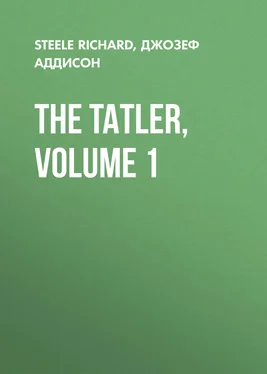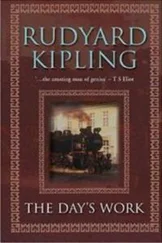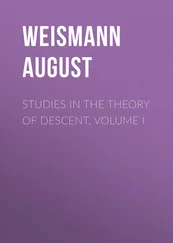Джозеф Аддисон - The Tatler, Volume 1
Здесь есть возможность читать онлайн «Джозеф Аддисон - The Tatler, Volume 1» — ознакомительный отрывок электронной книги совершенно бесплатно, а после прочтения отрывка купить полную версию. В некоторых случаях можно слушать аудио, скачать через торрент в формате fb2 и присутствует краткое содержание. Жанр: foreign_prose, foreign_antique, на английском языке. Описание произведения, (предисловие) а так же отзывы посетителей доступны на портале библиотеки ЛибКат.
- Название:The Tatler, Volume 1
- Автор:
- Жанр:
- Год:неизвестен
- ISBN:нет данных
- Рейтинг книги:4 / 5. Голосов: 1
-
Избранное:Добавить в избранное
- Отзывы:
-
Ваша оценка:
- 80
- 1
- 2
- 3
- 4
- 5
The Tatler, Volume 1: краткое содержание, описание и аннотация
Предлагаем к чтению аннотацию, описание, краткое содержание или предисловие (зависит от того, что написал сам автор книги «The Tatler, Volume 1»). Если вы не нашли необходимую информацию о книге — напишите в комментариях, мы постараемся отыскать её.
The Tatler, Volume 1 — читать онлайн ознакомительный отрывок
Ниже представлен текст книги, разбитый по страницам. Система сохранения места последней прочитанной страницы, позволяет с удобством читать онлайн бесплатно книгу «The Tatler, Volume 1», без необходимости каждый раз заново искать на чём Вы остановились. Поставьте закладку, и сможете в любой момент перейти на страницу, на которой закончили чтение.
Интервал:
Закладка:
St. James's Coffee-house, April 11
Letters from the Hague of the 16th say, that Major-General Cadogan 74 74 William, First Earl Cadogan (1675-1726), was an able officer who took a very prominent part in Marlborough's campaigns. In January, 1709, he was made lieutenant-general, and he was dangerously wounded at the siege of Mons. He was appointed Lieutenant of the Tower of London in December.
was gone to Brussels, with orders to disperse proper instructions for assembling the whole force of the allies in Flanders in the beginning of the next month. 75 75 The news-paragraphs in the earlier numbers of the Tatler are here preserved for the sake of completeness, but for the most part the details recorded are not of permanent interest, and do not call for comment. The reader may be reminded generally that in the spring of 1709 the French, after the battle of Oudenarde and the fall of Lille, followed by a very severe winter, were driven to think of terms of peace. The negotiations, however, fell through for the time, and the campaign was begun in the Netherlands, where Marlborough and Prince Eugene had an army of 110,000 men. The French were entrenched under Villars between Douay and Béthune, and were strengthened by part of the garrison of Tournay. Marlborough seized the opportunity of attacking the half-defended town, which was obliged to surrender on July 29, after a siege of nineteen days. The French then made a great effort, and brought an army of 100,000 men into the field, with the result that the battle of Malplaquet (Sept. 11) was a very bloody and hard-earned victory for the allies. The subsequent fall of Mons brought the campaign to a close.
The late offers concerning peace were made in the style of persons who think themselves upon equal terms. But the allies have so just a sense of their present advantages, that they will not admit of a treaty, except France offers what is more suitable to her present condition. At the same time we make preparations, as if we were alarmed by a greater force than that which we are carrying into the field. Thus this point seems now to be argued sword in hand. This was what a great general 76 76 Marlborough.
alluded to, when being asked the names of those who were to be plenipotentiaries for the ensuing peace, answered, with a serious air, "There are about a hundred thousand of us." Mr. Kidney, who has the ear of the greatest politicians that come hither, tells me, there is a mail come in to-day with letters, dated Hague, April 19, N.S., which say, a design of bringing part of our troops into the field at the latter end of this month, is now altered to a resolution of marching towards the camp about the 20th of the next. There happened the other day, in the road of Scheveling, an engagement between a privateer of Zealand and one of Dunkirk. The Dunkirker, carrying 33 pieces of cannon, was taken and brought into the Texel. It is said, the courier of Monsieur Rouillé 77 77 A merchant entrusted by Lewis XIV. to negotiate terms of peace with the Dutch.
is returned to him from the Court of France. Monsieur Vendôme being reinstated in the favour of the Duchess of Burgundy, is to command in Flanders.
Mr. Kidney added, that there were letters of the 17th from Ghent, which give an account, that the enemy had formed a design to surprise two battalions of the allies which lay at Alost; but those battalions received advice of their march, and retired to Dendermond. Lieutenant-General Wood 78 78 General Wood played a distinguished part in the battles of Donauwerth (1704) and Ramilies (1706).
appeared on this occasion at the head of 5000 foot, and 1000 horse, upon which the enemy withdrew, without making any further attempt.
From my own Apartment
I am sorry I am obliged to trouble the public with so much discourse upon a matter which I at the very first mentioned as a trifle—viz. the death of Mr. Partridge, 79 79 See the Introduction.
under whose name there is an almanack come out for the year 1709, in one page of which it is asserted by the said John Partridge, that he is still living, and that not only so, but that he was also living some time before, and even at the instant when I writ of his death. I have in another place, and in a paper by itself, sufficiently convinced this man that he is dead, and if he has any shame, I don't doubt but that by this time he owns it to all his acquaintance: for though the legs and arms, and whole body of that man may still appear and perform their animal functions; yet since, as I have elsewhere observed, his art is gone, the man is gone. I am, as I said, concerned, that this little matter should make so much noise; but since I am engaged, I take myself obliged in honour to go on in my lucubrations, and by the help of these arts of which I am master, as well as my skill in astrological speculations, I shall, as I see occasion, proceed to confute other dead men, who pretend to be in being, that they are actually deceased. I therefore give all men fair warning to mend their manners, for I shall from time to time print bills of mortality; and I beg the pardon of all such who shall be named therein, if they who are good for nothing shall find themselves in the number of the deceased. 80 80 "A Vindication of Isaac Bickerstaff, Esq., against what is objected to him by Mr. Partridge in his Almanack for the present year 1709. By the said Isaac Bickerstaff, Esq., London, printed in the year 1709." (Advertisement in folio issue.) In a pamphlet called "Predictions for the Year 1712. By Isaac Bickerstaff, Esq.; in a Letter to the author of the Oxford Almanack. Printed in the year 1712," this "Vindication" is thus noticed: "I can't but express my resentment against a gentleman who personated me in a paper called 'Mr. Bickerstaff's Vindication.' I'm grieved to find the times should be so very wicked, that one impostor should set up to reform another, and that a false Bickerstaff should write against an imaginary Partridge. And I am heartily concerned that one who shows so much wit, such extreme civility, and writes such a gentlemanlike style, should prefix my name to writings in which there appears so little solidity and no knowledge of the Arabian philosophy. If this paper should be transmitted to posterity (as, perhaps, it might have been by the authority of the name it wears in the front) it might have been a lasting reflection upon me to the end of the world.... Till seeing four volumes of writings—the collected edition of the Tatler —pretended to be mine, and a serious philosopher's name prefixed to papers as free from my solidity as they are full of wit, I thought it high time to vindicate myself, and give the world a taste of my writings; for I am now persuaded 'twill be more for my reputation to convince than to despise mankind."
No. 2.
[STEELE.
From Tuesday, April 12 , to Thursday, April 14 , 1709
Will's Coffee-house, April 13
There has lain all this evening, on the table, the following poem. The subject of it being matter very useful for families, I thought it deserved to be considered, and made more public. The turn the poet 81 81 William Harrison (1685-1713) was a favourite with Swift and Addison. He wrote verses, and a continuation of the Tatler , and afterwards obtained office in the diplomatic service; but his health soon broke down, and he died when 28.
gives it is very happy; but the foundation is from a real accident which happened among my acquaintance. 82 82 There is a similar story in Burton's "Anatomy of Melancholy."
A young gentleman of a great estate fell desperately in love with a great beauty of very high quality, but as ill-natured as long flattery and an habitual self-will could make her. However, my young spark ventures upon her, like a man of quality, without being acquainted with her, or having ever saluted her, till it was a crime to kiss any woman else. Beauty is a thing which palls with possession; and the charms of this lady soon wanted the support of good humour and complaisancy of manners. Upon this my spark flies to the bottle for relief from his satiety. She disdains him for being tired with that for which all men envied him; and he never came home, but it was: "Was there no sot that would stay longer? Would any man living but you? Did I leave all the world for this usage?" To which he: "Madam, split me, you are very impertinent!" In a word, this match was wedlock in its most terrible appearances. She, at last weary of railing to no purpose, applies to a good uncle, who gives her a bottle of water. "The virtue of this powerful liquor," said he, "is such, that if the woman you marry proves a scold (which, it seems, my dear niece, is your misfortune, as it was your good mother's before you), let her hold six spoonfuls in her mouth, for a full half hour after you come home—" But I find I am not in humour for telling a tale, and nothing in nature is so ungrateful as story-telling against the grain, therefore take it as the author has given it you.
Интервал:
Закладка:
Похожие книги на «The Tatler, Volume 1»
Представляем Вашему вниманию похожие книги на «The Tatler, Volume 1» списком для выбора. Мы отобрали схожую по названию и смыслу литературу в надежде предоставить читателям больше вариантов отыскать новые, интересные, ещё непрочитанные произведения.
Обсуждение, отзывы о книге «The Tatler, Volume 1» и просто собственные мнения читателей. Оставьте ваши комментарии, напишите, что Вы думаете о произведении, его смысле или главных героях. Укажите что конкретно понравилось, а что нет, и почему Вы так считаете.












